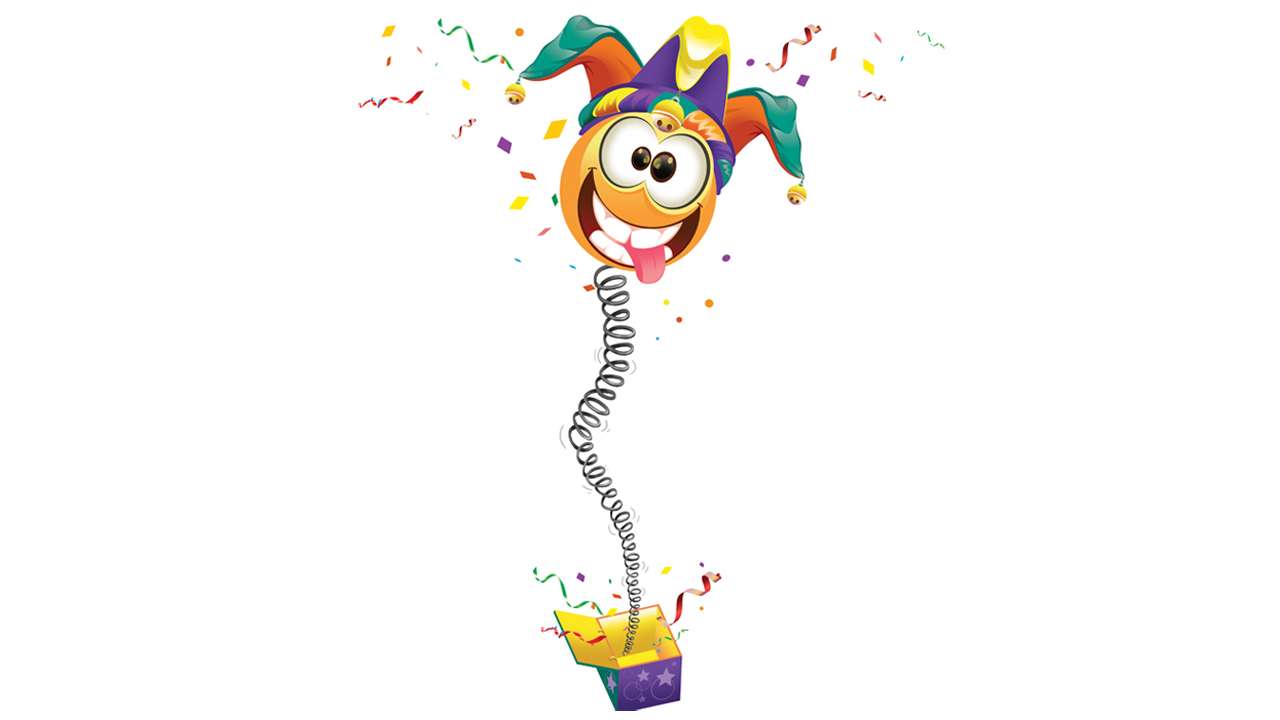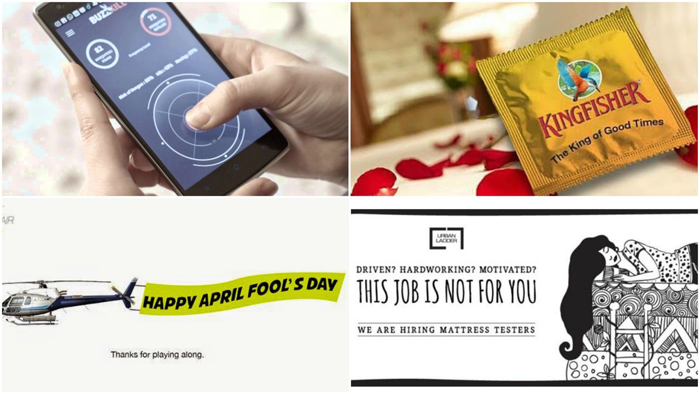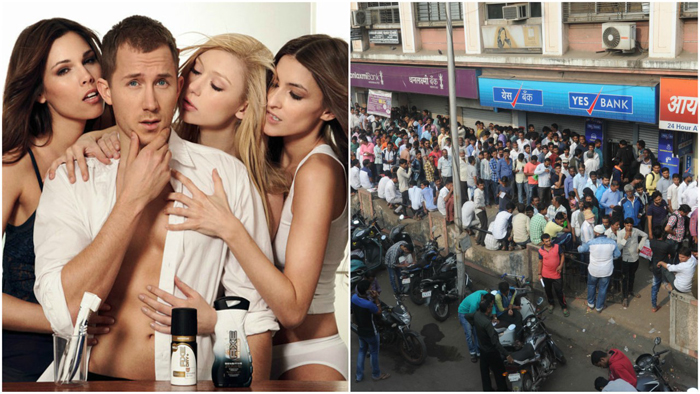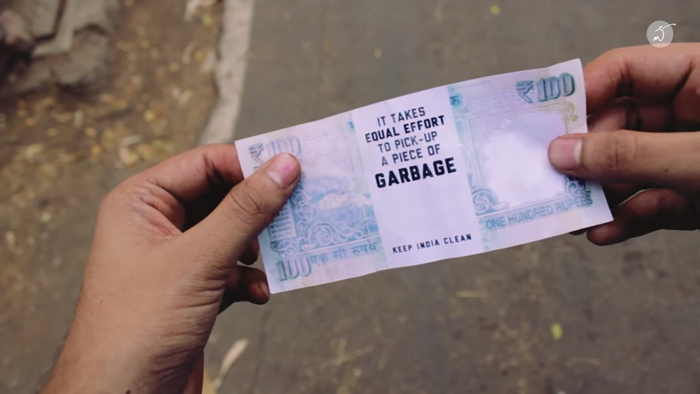
Around April 1 last year, JBM published an article about a young actor Siddhaarth Mahan who’d apparently got a big break in a Hollywood film. The story, which claimed that Mahan had been chosen by Josef Baxter, got a massive response. Many believed it, even though the last para clearly stated that the article was an April Fool prank. Even media persons were among those deceived, and many of them reached out to fix an interview with the actor. When a senior journalist, who heads the South Asia region for a leading European TV network, was told that it was a hoax, she was indignant. “What do you mean?” she thundered. She is still furious!
Clearly no one likes to be fooled. That, however, has not stopped people down the ages from trying to concoct ever elaborate and imaginative hoaxes, which even when they defy belief, are sure to raise a laugh. We gather the choicest ticklers for you:
April Fool’s Day is increasingly emerging as a marketing event, a la Valentine’s Day, with brands cooking up elaborate hoaxes pegged on outlandish ideas. Surprisingly, they draw in many consumers, while having fun themselves. Here’s listing a few examples:

Get paid for sleeping on the job
Two days before April 1, 2016, online furniture retailer Urban Ladder posted a job on LinkedIn for a ‘Senior Mattress Tester’. The company was looking to recruit someone to sleep on various mattresses, under different weather conditions, and check for the levels of comfort and ease. By April Fools’ Day, Urban Ladder had over 1,000 applications on LinkedIn and via email!
Space trippin’
In 2015, online travel company Yatra ran a contest asking people to complete the sentence, ‘I want to go to outer space because...’, claiming to give the winners a free ride to outer space. “We received over 100 entries for the contest,” a spokesperson from Yatra says. One contestant “wanted to escape...traffic and corruption”, and another wanted to check “the difference between heaven and hell.” The chosen two got to go on their space trip — sadly, only vicariously, through a DVD of the film Interstellar.
Renting out the Taj
India’s infamous conman, Natwarlal, ‘sold’ several public monuments, including the Taj Mahal to gullible tourists – thrice! You’d think people would’ve learned their lesson. But when online wedding planner WedMeGood announced in 2016 that the Taj Mahal was available on rent for weddings, many were taken in. Never mind that the post had evidently implausible riders such as – “Off limits will be the central water body in front of the Taj Mahal, and all the indoor areas. So unfortunately, mehendi pool parties will not be possible!”
Virtual mosquito killer
People were elated when Freecharge, a mobile bill payment app, claimed to have come up with an app called ‘Buzz-kill’ to kill mosquitoes. The app could apparently scan a five-metre radius and send out sound waves, mimicking a dragonfly’s wing beat frequency to shoo mosquitos away. Freecharge would also reward those who chased away a good number of mosquitoes using the app!
Ola’s ongoing gags
Ola, the online taxi aggregator, has for some years now been coming up with an ingenious prank every April 1. In 2015, they released a video announcing ‘Ola Air’, a service that transports you to your destination in a chopper at just Rs 499 an hour. The next year, they came up with ‘Ola Rooms’ that allowed customers to spend a night in an OLA cab for just Rs 249. Last year, ‘Ola Wheels’ was tossed up as a self-driving mobility assistant for ultra-short distances. So the lazy could use a segway-ish vehicle to beat the tiresome travel from their desk to the office gate. Videos, starring Ola CEO Bhavesh Aggarwal and other actors, listed out plausible reasons behind the initiatives, which fooled many. “Corporate parks are becoming bigger,” announce the ‘Ola Wheels’ video, explaining the service. “Inspired by Kisko Kurokawa’s capsule hotels in Japan,” went the ‘Ola Rooms’ video.
An unlikely partnership
On April 1, 2015, mobile advertising platform InMobi announced it wanted to invest in craft breweries, describing beer as the fuel that brought out the best in app developers. In a report, Manish Dugar, ex-CFO at InMobi, was quoted as saying he wanted to help indie developers build great apps “one pint at a time”, adding that, “Craft brewers are very similar to indie app developers. They are known for their innovation, developing unique twists to classic themes and putting the consumer at the centre of their work.”
Powdered beer
Beer powder — sold in pouches to be emptied into a mug with water — is what many of us wish we could take on long, hot treks or drives as they’d be light in weight and convenient. No wonder the news went viral on social media when last year, it was reported that Kingfisher — who else? — is announcing beer ‘sachets’. Of course, it was a hoax.
Much like JBM last year, media and content houses regularly come up with hoax news items on April Fool’s Day.

Joke or premonition?
On April 1, 2016, Akila, a Gujarati eveninger published from Rajkot, published a report saying that the Centre would scrap Rs 500 and Rs 1,000 notes by June 30, in order to weed out corruption and black money, and all those who had these high-denomination notes should exchange them for Rs 100-notes. It was an April Fool joke. Except that on November 8 that year, the prank turned unfunny and real when PM Modi announced demonetisation.
After the announcement, Akila’s phone lines wouldn’t stop ringing, and it had to publish a clarification two days later: “This news item was purely a prank for All Fools’ Day. There is no substance in reports that it was based on information leaked by officials.”
Axe Effect
An article that first appeared on the news satire blog Faking News (a dead giveaway) in 2009, reported that Vaibhav Bedi, a young man from Delhi, had sued Hindustan Unilever, the company behind AXE perfumes and deodorants, for £26,000 alleging “depression” and “psychological damage” because the “AXE Effect” had not worked for him. He made reference to the Axe commercial that shows women find men who spray copious amount of the brand on themselves, irresistible. Bedi claimed to have used Axe products for seven years, to no effect. He had submitted to the court, the report said, all his used, unused and half-used toiletries demanding a laboratory test of the products and demanded a narcotics test of Axe managers. Hilarious and oh so believable that even now, the Internet throws up articles published in well-reputed newspapers and magazines, which report the case as if it was, in fact, a reality.
An elephantine hoax
In 2007, the Associated Press (AP) released a report that American socialite Paris Hilton had decided to champion the cause of drunk elephants in Northeast India. Granted the issue is serious, causing massive destruction of life, property and crops, and granted that Hilton, despite her glamorous appearances and run-ins with the law, has espoused many worthy social causes, but drunken elephants? The news item was soon taken down by AP after Hilton’s publicist denied it all.
Jokes are not always fun and games, and at times laced with an underlying message.

In the mood to clean up
Some years ago, IIT Mumbai’s annual cultural festival, Mood Indigo came up with a short film on April Fool’s Day showing the reactions of students on discovering a folded Rs100 note lying on the ground. Students, who happily picked up the note felt a sting of disappointment on realising this was a prank, as inbetween the folds lay a printed message: “It Takes Equal Effort To Pick Up A Piece Of Garbage. Keep India clean.” The message, couched in a prank and delivered through commonplace social behaviour – that we will pick up money if we see it lying around, however much we’ve been told not to – hasn’t lost any of its salience.
Torchlight on dowry
Some years ago, the matrimonial site Shaadi.com came up with a ‘Dowry Calculator’ to help those on the marriage mart figure out their worth. The calculator required men to fill out a form listing details such as age, profession, salary, education, properties owned and nationality., and click on the ‘estimate’ button, and that’s when a message, completely unexpected and bone-chilling, would pop up, saying, “91,202 dowry deaths were reported in India between 2001-12. Do you still want to know????” The project, widely promoted by Shaadi.com on social media, campaigned to end dowry.
Crying wolf
Yoshita Rao from Team JBM shares a personal account:
“While commuting via the Western Railways in Mumbai, two years ago, I saw a burglar hiding behind the pillar of an overhead bridge snatch the bag of a lady standing at the train door. The sudden shock destabilised the victim who fell into the Mahim creek, and hit one of the bridge’s pillars. One of us dialled the railway helpline number — 182. After listening to the entire incident, we were shocked that the first question the man at the other end of the line asked was — ‘Yeh mazak toh nahi? (This a not a joke, right?)’. Apparently, 96 per cent of the 18,470 calls the Railway Helpline received in March were ‘fake/wrong calls’, not because they were prank calls, but in fact instances not related to the Railways, such as mobile recharges, SIM card and bank queries, power and water cut complaints, gas line bookings and soliciting advice on government jobs.”